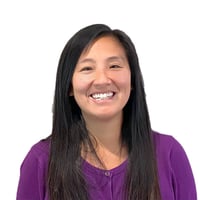By Emily Potz, Director, Licensing & Localization
eCOA (electronic Clinical Outcomes Assessment) has been part of clinical trials for nearly 20 years, but traditional eCOA tools are burdened by gaps in delivery, execution quality, and logistics. Licensing and localization are particularly challenging, and top most sponsors’ lists as difficult and time-consuming.
Today’s trials are typically global studies with multiple sites. That means numerous questionnaires per trial, implemented in various languages. Consider this: a typical study can expect around five to six questionnaires, each requiring translation into 15 to 20 languages. Add on licensing requirements and localization needs, and it is easy to see how study teams can quickly become overwhelmed, especially when timelines are tight.
This blog explores what makes licensing and localization so onerous and offers solutions to typical challenges – so study teams can confidently mitigate risks to meet aggressive timelines.
Navigating the chaotic landscape of licensing
I've spent my entire career in the questionnaire translation and licensing business, so I’m understandably sensitive to challenges that can arise here. Questionnaires and their translations are protected by copyright laws, and sponsors need permission to use or translate a questionnaire. Determining ownership and copyright status, whether in the public domain or private ownership, requires careful attention.
Because many different individuals and organizations hold questionnaire licenses, securing usage rights in eCOA isn’t a one-size-fits-all approach. Research and negotiation are required to navigate the unique process, which includes understanding the fees and requirements of each license holder. Executing a license agreement – a process that could seem straightforward – can also be complicated, for example with potential legal reviews and negotiations that can add weeks, even months, to timelines.
Licensing for various questionnaires can run in parallel, and may begin before a study officially commences. I often advise sponsors that once the research is approved, to quickly establish contact with questionnaire license holders and begin negotiating the licensing agreements to accelerate this potentially long process.
Translations and localization: preparing for language and cultural differences
Once license agreements are finalized, study teams are set up to begin translation and localization immediately. That process can be difficult due to obstacles stemming from the sheer volume of questionnaires, technology tools designed only for English, and the nuances of localization to unique cultures.
With most studies needing between 75-120 unique questionnaire translations, coping with volume is challenging. While there is increased reuse of existing translations, managing both the new translation process and use of existing translations, where possible, is complex, time-consuming, and demands attention to detail.
Many existing eCOA products also make translations and localization challenging. The typical tech solution is designed to create visually appealing English questionnaires. This usually works fairly well for similar languages, but it can struggle to accommodate right-to-left languages, complex characters, and varied line breaking. Attempting to update a legacy product is often impractical or time-consuming, leaving sponsors to institute convoluted work arounds to meet their study site needs.
Lastly, inadequate localization of questionnaires can significantly affect study outcomes from interpretive errors stemming from translation. For example, a multiple-site global study in US and China must have the original English questionnaires both translated to the Chinese language and carefully localized to the cultural context.
Simplifying eCOA complexities for smoother implementation
For smoother eCOA implementation, several practices can enhance the process:
- Bring the translation process in-house or invest in an existing translation vendor.
- Leverage functionality to seamlessly implement a single questionnaire across multiple studies to speed timelines and drive data quality.
- Establish licensing best practices.
At Suvoda, we’re doing both #1 and #2. Building a translation system from scratch can be overwhelming, so opting for an established vendor can streamline the process and optimize resource utilization. Having translators work within the eCOA system itself—as Suvoda does—can increase efficiency.
Working with license holders and translation vendors saves time and promotes consistency across studies, ensuring the availability of validated translations for future use. It's our goal that this knowledge base can help sponsors get ahead of potential roadblocks to reduce costs and enhance overall efficiency.
Establishing licensing best practices, although seemingly a long way off, is another critical step for smoother eCOA implementation. For example, collaboration between eCOA knowledge experts and major license holders could lead to standardized guidelines, aiming for mutual agreement on licensing processes, timeframes, and associated fees. By achieving a consensus among license holders, the industry can benefit from a clear and consistent approach to licensing, eliminating uncertainties and facilitating smoother operations.
Embracing a promising future for eCOA
Many are working to figure out how to deliver eCOA more smoothly, and the field is evolving. While future innovations show increasing promise, it is important to keep today’s eCOA needs front and center. With careful planning from the beginning, sponsors can streamline eCOA implementation to reduce delays, cost, and workflow friction. This means that studies can confidently collect high-quality, inspection-ready, and submission-friendly data, paving the way for meaningful advancements in health outcomes.
Learn more about how your clinical trials can benefit from Suvoda eCOA
Author

Emily Potz
Director, Licensing & Localization
Suvoda
